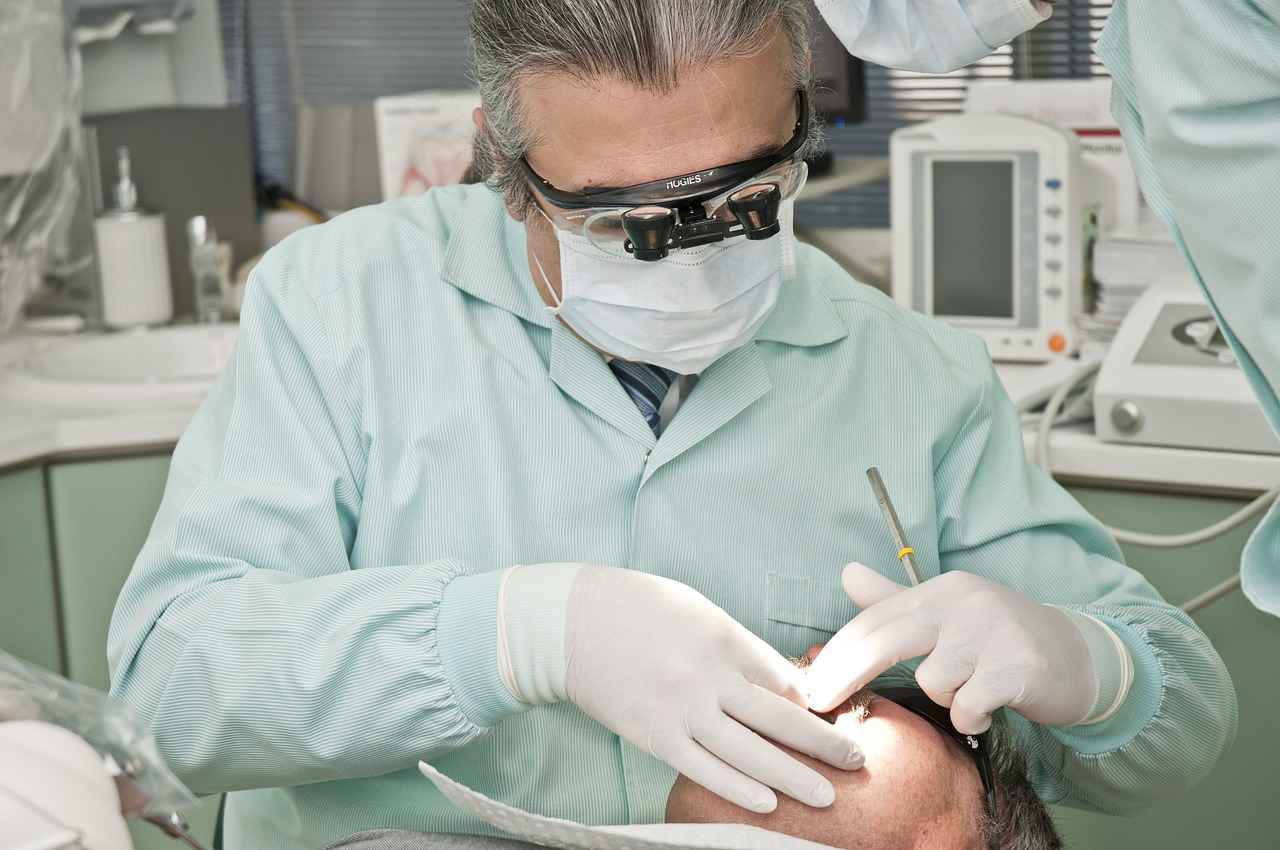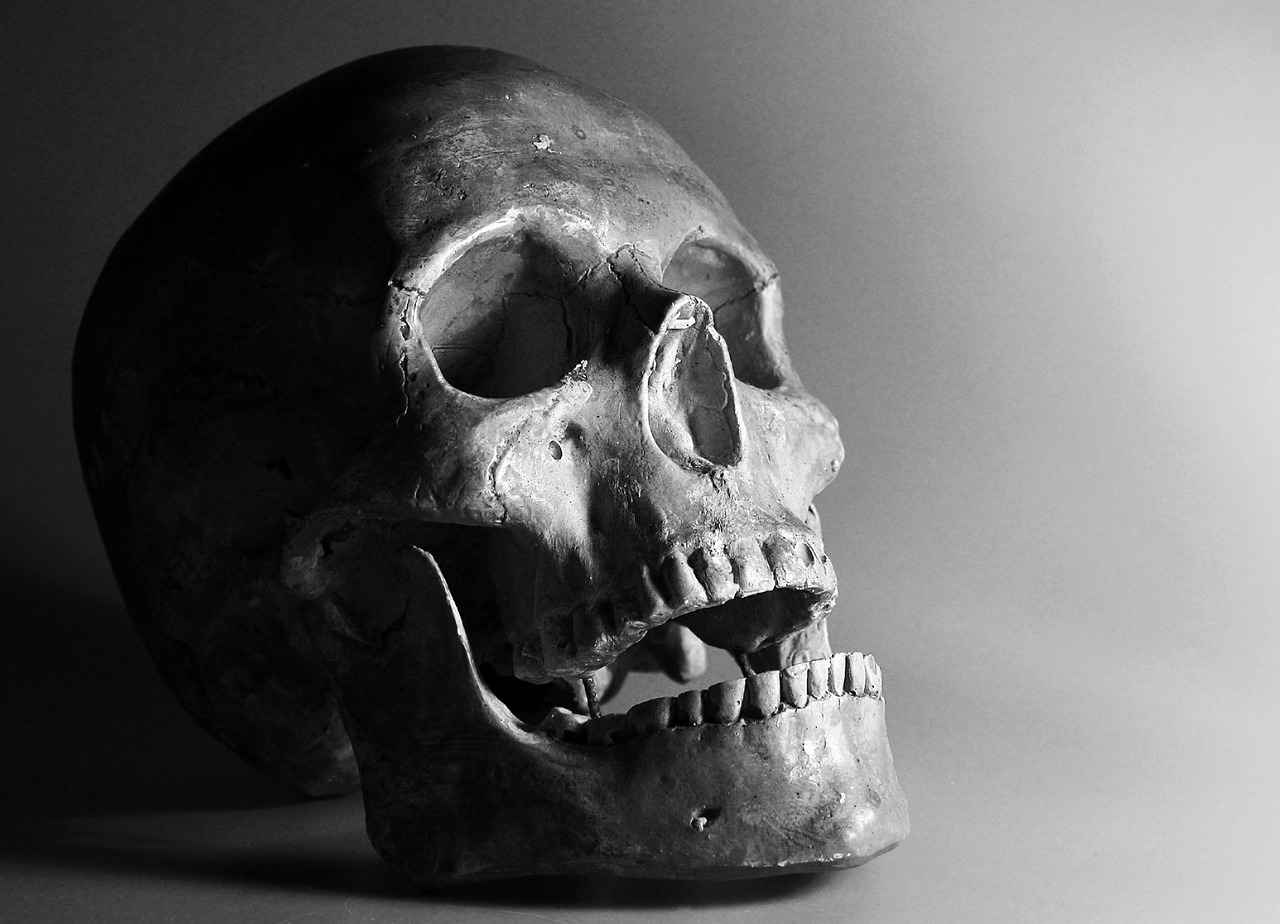Strontium supplements have emerged as a focal point in discussions surrounding bone health. These supplements are not just a passing trend; they are backed by scientific research that highlights their potential benefits for enhancing bone density and overall skeletal health. This article delves into the multifaceted advantages of strontium, its mechanisms of action, and considerations for effective use.
What is Strontium?
Strontium is a naturally occurring mineral that shares similarities with calcium, a vital element in the formation and maintenance of bone tissue. Understanding strontium’s role is essential for appreciating its benefits in promoting bone health.
How Strontium Supports Bone Health
Strontium contributes to bone density by mimicking calcium, thereby facilitating the formation of new bone tissue. It engages in biochemical processes that enhance bone mineralization, making it a valuable ally in the fight against osteoporosis.
The Mechanism of Action
Research indicates that strontium positively influences osteoblast activity, the cells responsible for bone formation. By stimulating these cells, strontium enhances bone mass and mineralization, which are crucial for maintaining healthy bones.
Impact on Osteoblasts
Studies have shown that strontium can stimulate the proliferation of osteoblasts, leading to increased bone mass. This effect is particularly significant for individuals at risk of osteoporosis, enhancing treatment outcomes.
Reduction of Osteoclast Activity
In addition to promoting bone formation, strontium inhibits osteoclasts, the cells that break down bone tissue. This balance between formation and resorption is vital for maintaining optimal bone density.
Clinical Studies and Evidence
Numerous clinical trials have explored the efficacy of strontium supplements in improving bone health. The findings consistently indicate a positive correlation between strontium supplementation and enhanced bone density, particularly in postmenopausal women.
Benefits of Strontium Supplements
- Improved Bone Density: Strontium supplementation has been shown to significantly enhance bone mineral density.
- Reduced Fracture Risk: There is substantial evidence suggesting that strontium can lower the risk of fractures, particularly in those with osteoporosis.
Potential Side Effects and Risks
While strontium supplements are beneficial, they may also cause side effects. Common issues include gastrointestinal discomfort, which some users experience. It’s essential to discuss these potential side effects with a healthcare provider before starting supplementation.
Interactions with Medications
Strontium may interact with certain medications, especially those that affect bone metabolism. Users should consult healthcare professionals to avoid any adverse interactions.
How to Choose the Right Strontium Supplement
Selecting a quality strontium supplement is crucial for maximizing benefits. Consider the various forms available, such as strontium citrate and strontium ranelate, and their respective bioavailability.
Dosage Recommendations
Understanding the appropriate dosage is vital for safety and efficacy. General guidelines suggest consulting with a healthcare provider to determine the best dosage based on individual needs.
Conclusion: The Future of Strontium in Bone Health
Strontium supplements hold promise in supporting bone health, particularly for individuals at risk of osteoporosis. As ongoing research continues to explore their role, strontium may become an essential component in bone health management strategies.

What is Strontium?
Strontium is a naturally occurring mineral that is often associated with calcium due to its similar chemical properties. Found in various minerals and even in trace amounts in certain foods, strontium plays a significant role in bone formation and maintenance. This article will explore the importance of strontium, its benefits for bone health, and how it can be effectively utilized.
Strontium is primarily found in the Earth’s crust and is often extracted from minerals like celestite and strontianite. It is essential for the development of strong bones, particularly during the formative years of life. As we age, the body’s natural ability to maintain bone density diminishes, making the role of strontium even more critical.
| Property | Description |
|---|---|
| Chemical Symbol | Sr |
| Atomic Number | 38 |
| Relation to Calcium | Similar chemical properties |
| Role in Bone Health | Supports bone formation and density |
Understanding the properties of strontium is crucial for appreciating its benefits in bone health. Research indicates that strontium can enhance bone density by mimicking calcium, which is vital for the formation of new bone tissue. This mimicry allows strontium to be incorporated into the bone matrix, contributing to overall bone strength.
Furthermore, strontium has been shown to influence the activity of osteoblasts, the cells responsible for building new bone. By promoting osteoblast proliferation, strontium may lead to increased bone mass, making it a valuable supplement for those at risk of osteoporosis.
In conclusion, strontium is not just a mineral; it is a critical component in maintaining healthy bones. Its unique properties and benefits for bone health make it an important subject of study and consideration for those interested in enhancing their skeletal well-being.

How Strontium Supports Bone Health
Strontium is a mineral that plays a crucial role in maintaining and enhancing bone health. Its ability to mimic calcium allows it to participate in the complex processes of bone formation and remodeling. This section explores the biochemical mechanisms through which strontium operates, providing insights into its effectiveness in promoting bone density.
One of the primary ways strontium supports bone health is by influencing the activity of osteoblasts. These are the cells responsible for the formation of new bone tissue. When strontium is present, it enhances osteoblast proliferation, which leads to an increase in bone mass. This is particularly important for individuals at risk of osteoporosis, as greater bone mass can significantly reduce the likelihood of fractures.
Additionally, strontium impacts the mineralization of bone. It stimulates the deposition of minerals in the bone matrix, thereby strengthening the overall structure. This process is vital for maintaining bone density, especially in aging populations where bone loss is a common concern.
Moreover, strontium also plays a role in modulating the activity of osteoclasts, the cells responsible for bone resorption. By inhibiting these cells, strontium helps to create a favorable balance between bone formation and resorption, ultimately supporting healthier bones. This dual action of promoting osteoblast activity while reducing osteoclast activity is essential for maintaining optimal bone density.
In summary, strontium supports bone health through its unique ability to mimic calcium, enhance osteoblast function, and inhibit osteoclast activity. These mechanisms collectively contribute to improved bone density and structural integrity, making strontium a valuable supplement for those concerned about their bone health.
The Mechanism of Action
Understanding the Mechanism of Action of Strontium in Bone Health
Strontium plays a pivotal role in enhancing bone health through its influence on osteoblasts and osteoclasts. As the primary cells responsible for bone formation, osteoblasts are significantly affected by strontium supplementation. This section will delve into how strontium enhances the activity of these cells, promoting bone mineralization while simultaneously reducing bone resorption.
Enhancement of Osteoblast Activity
Research indicates that strontium positively influences osteoblast proliferation. By mimicking calcium, strontium integrates into the bone matrix, which leads to increased bone density. This process is vital for individuals at risk of osteoporosis, as enhanced osteoblast activity can result in higher bone mass and improved structural integrity.
Reduction in Osteoclast Activity
In addition to stimulating osteoblasts, strontium also plays a crucial role in inhibiting osteoclast activity. Osteoclasts are the cells responsible for bone resorption, and their overactivity can lead to a decrease in bone density. By balancing the activity of these two cell types, strontium helps maintain a healthy bone turnover, which is essential for overall bone health.
Impact on Bone Mineralization
Strontium enhances bone mineralization by promoting the deposition of minerals in the bone matrix. This process not only strengthens the bones but also improves their resistance to fractures. The ability of strontium to support mineralization is particularly beneficial for older adults and postmenopausal women, who are at a greater risk for developing osteoporosis.
Conclusion
In summary, strontium’s dual action on osteoblasts and osteoclasts makes it a valuable supplement for enhancing bone health. By promoting bone formation and reducing resorption, strontium supports overall skeletal integrity, making it a promising option for individuals concerned about maintaining healthy bones.
Impact on Osteoblasts
Strontium is emerging as a significant player in the field of bone health, particularly due to its influence on osteoblasts, the cells responsible for bone formation. Research indicates that strontium not only stimulates the proliferation of these cells but also enhances their functionality, which is crucial for individuals suffering from conditions like osteoporosis.
Osteoblasts play a vital role in the synthesis of bone matrix and the mineralization process. When strontium is introduced into the body, it mimics calcium and is incorporated into the bone structure. This mimicry facilitates a series of biochemical reactions that lead to increased osteoblast activity. Studies suggest that strontium can significantly boost the number of osteoblasts, resulting in greater bone mass and density.
One of the key implications of strontium’s effects on osteoblasts is its potential in treating osteoporosis. Osteoporosis is characterized by low bone density and an increased risk of fractures. By enhancing osteoblast proliferation, strontium can help counteract the effects of this debilitating condition. Clinical trials have shown that patients who incorporate strontium supplements into their regimen experience improved bone density, which can lead to a reduced risk of fractures.
Moreover, the balance between osteoblast and osteoclast activity is essential for maintaining healthy bone structure. Osteoclasts are responsible for bone resorption, and an increase in their activity can lead to bone loss. Strontium’s ability to promote osteoblast activity while simultaneously inhibiting osteoclast function creates a favorable environment for bone health.
In conclusion, the impact of strontium on osteoblasts is profound and offers promising avenues for the treatment of osteoporosis. Continued research is essential to fully understand the mechanisms at play and to optimize strontium’s use in clinical practice.
Reduction of Osteoclast Activity
Strontium plays a significant role in maintaining bone health by not only promoting the formation of new bone tissue but also by actively inhibiting osteoclasts. Osteoclasts are specialized cells responsible for the breakdown of bone, a process known as bone resorption. This balance between bone formation and resorption is crucial for preserving healthy bone density and preventing conditions such as osteoporosis.
Research indicates that strontium can effectively reduce osteoclast activity, which helps to slow down the rate of bone loss. By decreasing the activity of these cells, strontium contributes to a more favorable environment for osteoblasts, the cells responsible for building new bone. This dual action of promoting osteoblast function while suppressing osteoclast activity is essential for maintaining optimal bone health.
In clinical studies, patients taking strontium supplements have shown significant improvements in bone mineral density. For instance, postmenopausal women, who are at a higher risk of osteoporosis, have benefited from strontium’s ability to inhibit osteoclasts, leading to a reduction in fracture risk. This protective effect is particularly important as it helps to maintain structural integrity in the bones, thereby enhancing overall skeletal strength.
Moreover, the inhibition of osteoclasts by strontium is linked to a reduction in inflammatory markers associated with bone resorption. This suggests that strontium not only acts on the cellular level but may also have systemic effects that promote bone health. As such, individuals considering strontium supplementation should consult with healthcare professionals to determine the most effective dosage and formulation tailored to their specific health needs.
In summary, the ability of strontium to reduce osteoclast activity is a vital mechanism that supports bone density and helps prevent bone-related disorders. This makes strontium supplements a valuable option for individuals looking to enhance their bone health.
Clinical Studies and Evidence
In recent years, a multitude of clinical studies have focused on the effects of strontium supplements on bone health, revealing promising results for individuals concerned about osteoporosis and bone density. This section aims to synthesize these findings and provide a comprehensive overview of their implications for users.
| Study Author | Year | Findings | Population |
|---|---|---|---|
| Reginster et al. | 2005 | Strontium ranelate significantly increased bone mineral density. | Postmenopausal women with osteoporosis |
| Meunier et al. | 2004 | Reduced vertebral fracture risk by 41% in treated group. | Older adults with low bone mass |
| Horne et al. | 2011 | Improved bone turnover markers with strontium supplementation. | Healthy older adults |
One of the most notable studies conducted by Reginster et al. in 2005 highlighted that strontium ranelate not only increases bone mineral density but also significantly reduces the risk of fractures among postmenopausal women. This finding is particularly important as it underscores the potential of strontium supplements to act as a preventive measure against osteoporosis-related fractures.
Another pivotal study by Meunier et al. in 2004 reported a remarkable 41% reduction in vertebral fractures among older adults with low bone mass who were administered strontium. These results suggest that strontium could play a vital role in fracture prevention, a major concern for aging populations.
Furthermore, research by Horne et al. in 2011 indicated that strontium supplementation positively affects bone turnover markers. This suggests that strontium not only enhances bone density but also promotes a healthier bone remodeling process, which is crucial for maintaining strong bones over time.
In conclusion, the collective evidence from these clinical studies strongly supports the efficacy of strontium supplements in improving bone health and reducing fracture risks. As ongoing research continues to explore the long-term benefits and safety of strontium, individuals considering supplementation should consult healthcare professionals to tailor their approach based on personal health needs and conditions.

Benefits of Strontium Supplements
Strontium supplements have become increasingly popular among individuals focused on enhancing their bone health. Research and expert opinions highlight several key advantages that these supplements offer, making them an appealing option for those concerned about maintaining strong and healthy bones.
- Enhanced Bone Density: One of the most notable benefits of strontium supplementation is its ability to significantly improve bone mineral density. This is particularly beneficial for postmenopausal women and older adults, who are at a higher risk of developing osteoporosis.
- Fracture Risk Reduction: Strontium has been linked to a lower incidence of fractures in individuals suffering from osteoporosis. Clinical studies indicate that regular strontium intake can lead to a marked decrease in fracture rates, providing a protective effect on bone integrity.
- Bone Formation Stimulation: Strontium works by mimicking calcium, promoting the activity of osteoblasts, the cells responsible for bone formation. This stimulation is crucial for developing new bone tissue, thus enhancing overall bone strength.
- Inhibition of Bone Resorption: In addition to promoting bone formation, strontium also inhibits the activity of osteoclasts, the cells that break down bone tissue. This dual action helps maintain a healthy balance between bone formation and resorption, which is vital for bone health.
- Improved Overall Skeletal Health: Regular intake of strontium supplements can contribute to better overall skeletal health, supporting not just bone density but also the structural integrity of the entire skeletal system.
In conclusion, strontium supplements offer a range of benefits for individuals concerned about their bone health. With their ability to enhance bone density, reduce fracture risk, and promote overall skeletal health, these supplements are a valuable addition to the wellness routines of those at risk for bone-related issues. As always, it’s advisable to consult with a healthcare professional before starting any new supplement regimen.
Improved Bone Density
One of the most remarkable advantages of strontium supplementation is its potential to significantly enhance bone mineral density. This is particularly crucial for postmenopausal women and older adults, who are at a higher risk of developing conditions such as osteoporosis. As individuals age, their bone density tends to decline, making them more susceptible to fractures and other bone-related issues.
Understanding the Importance of Bone Density
- Bone Density is a measure of the amount of minerals (mainly calcium and phosphorus) contained in a certain volume of bone.
- Higher bone density generally indicates stronger bones, which are less likely to fracture.
- Maintaining optimal bone density is essential for overall skeletal health.
How Strontium Works
Strontium works by mimicking the effects of calcium in the body. It is absorbed into the bone structure, where it promotes the activity of osteoblasts, the cells responsible for bone formation. This stimulation leads to an increase in bone mass and density, effectively countering the natural bone loss that occurs with age.
Clinical Evidence Supporting Strontium’s Efficacy
Numerous clinical studies have shown that strontium supplementation can lead to a measurable increase in bone mineral density. For instance, research indicates that postmenopausal women who take strontium supplements experience a significant improvement in their bone density compared to those who do not. This is particularly important for preventing fractures in this vulnerable population.
Conclusion
In summary, strontium supplementation offers a promising solution for enhancing bone mineral density, especially in postmenopausal women and older adults. By supporting the natural processes of bone formation, strontium can play a vital role in maintaining skeletal health and reducing the risk of osteoporosis-related fractures.
Reduced Fracture Risk
Strontium has emerged as a significant supplement in the realm of bone health, particularly for individuals at risk of osteoporosis. Research indicates that strontium may be linked to a lower risk of fractures, especially among older adults and those with compromised bone density. This section delves into the compelling evidence supporting this protective effect.
One of the primary mechanisms through which strontium exerts its benefits is by enhancing bone mineral density. Studies have shown that strontium supplements can effectively increase the density of bones, making them less susceptible to fractures. In a clinical trial involving postmenopausal women, participants who took strontium demonstrated a significant reduction in vertebral fractures compared to those who received a placebo.
Additionally, strontium’s ability to influence osteoblast activity plays a crucial role in its protective effects. Osteoblasts are the cells responsible for bone formation, and strontium has been shown to stimulate their proliferation. This increase in osteoblast activity leads to enhanced bone regeneration, which is vital for individuals with weakened skeletal structures.
Moreover, strontium not only promotes bone formation but also inhibits the activity of osteoclasts, the cells responsible for bone resorption. This dual action helps maintain a healthy balance between bone formation and breakdown, further contributing to lower fracture rates.
In summary, the evidence supporting strontium’s role in reducing fracture risk is robust. Its ability to enhance bone density and promote the activity of bone-forming cells while inhibiting bone-resorbing cells makes it a valuable supplement for those concerned about bone health. For individuals with osteoporosis or those at risk of fractures, incorporating strontium into their regimen may lead to significant improvements in bone strength and overall skeletal health.

Potential Side Effects and Risks
While strontium supplements have garnered attention for their potential to enhance bone health, it is essential to consider the possible side effects and risks associated with their use. Before starting any supplementation, understanding these factors can help ensure a safe and effective approach to bone health management.
- Gastrointestinal Disturbances: Some individuals may experience gastrointestinal issues such as nausea, diarrhea, or abdominal discomfort when taking strontium supplements. It is advisable to start with a lower dose and gradually increase it to minimize these effects.
- Allergic Reactions: Although rare, allergic reactions to strontium supplements can occur. Symptoms may include rash, itching, or swelling. If any of these symptoms arise, it is crucial to discontinue use and seek medical attention.
- Drug Interactions: Strontium can interact with certain medications, particularly those impacting bone metabolism, such as bisphosphonates. It is vital to consult with a healthcare provider before combining strontium with other treatments to avoid adverse interactions.
- Kidney Concerns: Individuals with existing kidney conditions should exercise caution when considering strontium supplements, as they may exacerbate renal issues. Regular monitoring and consultation with a healthcare professional are recommended.
Before starting strontium supplementation, it is advisable to consult with a healthcare professional to discuss potential risks, especially if you have pre-existing health conditions or are taking other medications. This proactive approach can help tailor a safe and effective supplementation plan that aligns with your health goals.
In conclusion, while strontium supplements can offer significant benefits for bone health, understanding their potential side effects and risks is crucial. By being informed and cautious, individuals can better navigate their supplementation journey.
Gastrointestinal Issues
are a common concern among users of strontium supplements. While these supplements are celebrated for their potential to enhance bone health, some individuals may experience discomfort in the digestive tract. This section aims to explore these side effects, their causes, and practical strategies for mitigation.
Strontium, a mineral closely related to calcium, is absorbed in the intestines. When taken in supplement form, it can lead to gastrointestinal discomfort, which may manifest as symptoms such as:
- Nausea
- Diarrhea
- Abdominal pain
- Constipation
These symptoms can be attributed to the body’s adjustment to the mineral or the specific formulation of the supplement. It is essential to understand that not everyone will experience these side effects, but awareness can help users prepare and respond effectively.
To mitigate gastrointestinal issues, consider the following strategies:
- Start with a lower dosage: Gradually increasing the dosage can help your body adjust without overwhelming the digestive system.
- Take with food: Consuming strontium supplements with meals can enhance absorption and reduce the likelihood of discomfort.
- Stay hydrated: Drinking plenty of water can aid digestion and help alleviate symptoms.
- Consult a healthcare provider: If discomfort persists, it is advisable to seek medical advice for personalized recommendations.
In conclusion, while gastrointestinal discomfort can occur with strontium supplementation, understanding its causes and implementing preventive measures can significantly enhance the experience. Always prioritize communication with healthcare professionals to ensure safe and effective use of these supplements.
Interactions with Medications
Strontium supplements, while beneficial for bone health, may interact with certain medications, especially those that influence bone metabolism. Understanding these interactions is crucial for individuals considering strontium supplementation, particularly those already on medication for bone-related conditions.
One of the primary concerns is the interaction between strontium and bisphosphonates, a class of drugs commonly prescribed for osteoporosis. Bisphosphonates work by inhibiting osteoclasts, the cells responsible for bone resorption. When taken together with strontium, which promotes osteoblast activity and bone formation, there may be conflicting effects on bone metabolism. Therefore, it is essential to consult a healthcare provider before combining these treatments.
Additionally, strontium may also interact with calcium supplements. Since strontium mimics calcium in the body, taking both simultaneously can lead to impaired absorption of either mineral. This can result in reduced effectiveness of both supplements, potentially hindering their intended benefits for bone health.
Moreover, individuals on hormone replacement therapy (HRT) should be cautious. HRT can influence bone density and metabolism, and the addition of strontium may alter the expected outcomes of the therapy. Monitoring and adjusting dosages may be necessary to achieve optimal results.
In summary, while strontium supplements can be a valuable addition to a bone health regimen, it is vital to be aware of potential drug interactions. Always seek advice from a healthcare professional before starting supplementation, especially if you are taking medications that affect bone metabolism. This precaution can help ensure safe and effective use of strontium in supporting bone health.

How to Choose the Right Strontium Supplement
Selecting a quality strontium supplement is essential for maximizing benefits. With the growing interest in bone health, it is crucial to understand what to look for when choosing a product that meets your needs. Here are some key considerations to guide your selection process.
- Form of Strontium: Strontium supplements come in various forms, including strontium citrate and strontium ranelate. Research indicates that these forms may vary in their bioavailability and effectiveness. It’s important to choose a form that has been clinically studied for bone health.
- Purity and Quality: Always opt for products that are third-party tested for purity and quality. Look for certifications from reputable organizations that confirm the absence of contaminants and the accuracy of ingredient labeling.
- Dosage: The appropriate dosage can vary based on individual health needs and product formulation. Generally, a daily intake of 680 mg of strontium is often recommended for optimal benefits. However, consult with a healthcare provider to determine the right dosage for you.
- Additional Ingredients: Some strontium supplements may include added vitamins and minerals, such as vitamin D or calcium, which can enhance bone health. Check the label to ensure these additions align with your health goals.
- User Reviews and Feedback: While scientific evidence is critical, user experiences can provide valuable insights. Look for products with positive reviews and feedback from users who have similar health concerns.
In conclusion, when selecting a strontium supplement, consider the form, purity, dosage, additional ingredients, and user feedback. By paying attention to these factors, you can choose a product that supports your bone health effectively.
Types of Strontium Supplements
When considering strontium supplements, it’s essential to understand the different forms available on the market. Each type has unique properties, effectiveness, and bioavailability, which can influence their suitability for individual needs. Below, we will explore two of the most common forms: strontium citrate and strontium ranelate.
| Supplement Type | Bioavailability | Effectiveness | Common Uses |
|---|---|---|---|
| Strontium Citrate | High | Promotes bone density effectively | General bone health support |
| Strontium Ranelate | Moderate | Used primarily for osteoporosis treatment | Specifically for osteoporosis management |
Strontium Citrate is often favored for its high bioavailability, meaning that the body can absorb and utilize it more efficiently. This form is typically recommended for individuals looking to enhance their overall bone health and density. It mimics calcium effectively, promoting osteoblast activity and supporting new bone formation.
On the other hand, Strontium Ranelate has a moderate bioavailability and is primarily used in clinical settings for treating osteoporosis. It works by not only stimulating bone formation but also reducing bone resorption, making it a dual-action supplement. However, its use may be limited due to potential side effects and specific patient considerations.
In summary, both strontium citrate and strontium ranelate have their unique advantages and applications. The choice between them should be guided by individual health needs, lifestyle, and professional medical advice.
Dosage Recommendations
Understanding the appropriate dosage of strontium supplements is crucial for ensuring both safety and efficacy. The right dosage can significantly influence the outcomes of supplementation, particularly in terms of enhancing bone health and minimizing potential side effects.
Current research and expert recommendations suggest that the typical dosage of strontium supplements ranges from 680 mg to 1,500 mg per day. However, it is essential to consult with a healthcare professional before starting any supplementation regimen, as individual needs may vary based on factors such as age, gender, and existing health conditions.
| Age Group | Recommended Dosage |
|---|---|
| Adults (19-50 years) | 680 mg daily |
| Older Adults (51+ years) | 1,000 mg daily |
| Postmenopausal Women | 1,500 mg daily |
It is also important to note that strontium supplements should ideally be taken with food to enhance absorption. Additionally, users should avoid taking strontium at the same time as calcium supplements, as this can interfere with the absorption of both minerals.
Monitoring for any side effects is essential, especially during the initial phase of supplementation. Common side effects may include gastrointestinal discomfort, and if such symptoms occur, it may be advisable to adjust the dosage or consult a healthcare provider.
In summary, while strontium supplements can provide significant benefits for bone health, adherence to recommended dosages is vital. Always prioritize consultation with a healthcare professional to tailor the dosage to individual health needs and conditions.

Conclusion: The Future of Strontium in Bone Health
Strontium supplements are emerging as a promising option for individuals concerned about bone health, particularly for those at risk of developing osteoporosis. Research has shown that strontium can play a significant role in enhancing bone density and reducing the risk of fractures, making it a valuable consideration for preventive health strategies.
One of the key benefits of strontium is its ability to mimic calcium, facilitating the formation of new bone tissue. This biochemical mechanism allows strontium to positively influence the activity of osteoblasts, the cells responsible for bone formation. Furthermore, by inhibiting the activity of osteoclasts, which break down bone tissue, strontium helps maintain a healthy balance in bone remodeling.
Clinical studies have provided evidence supporting the efficacy of strontium supplements, particularly in improving bone mineral density in postmenopausal women and older adults. These findings highlight the potential of strontium as a therapeutic option for osteoporosis management. However, as with any supplement, it is essential to consider potential side effects, such as gastrointestinal discomfort, and interactions with other medications.
As research continues to evolve, the understanding of strontium’s role in bone health will become clearer. Ongoing studies aim to establish optimal dosages, formulations, and long-term effects of strontium supplementation. For individuals seeking to bolster their bone health, strontium presents a compelling option, especially when guided by healthcare professionals.
In conclusion, strontium supplements show significant promise in supporting bone health, particularly for at-risk populations. As more data emerges, strontium may well become a cornerstone in the management of bone density and osteoporosis, paving the way for healthier, stronger bones.







